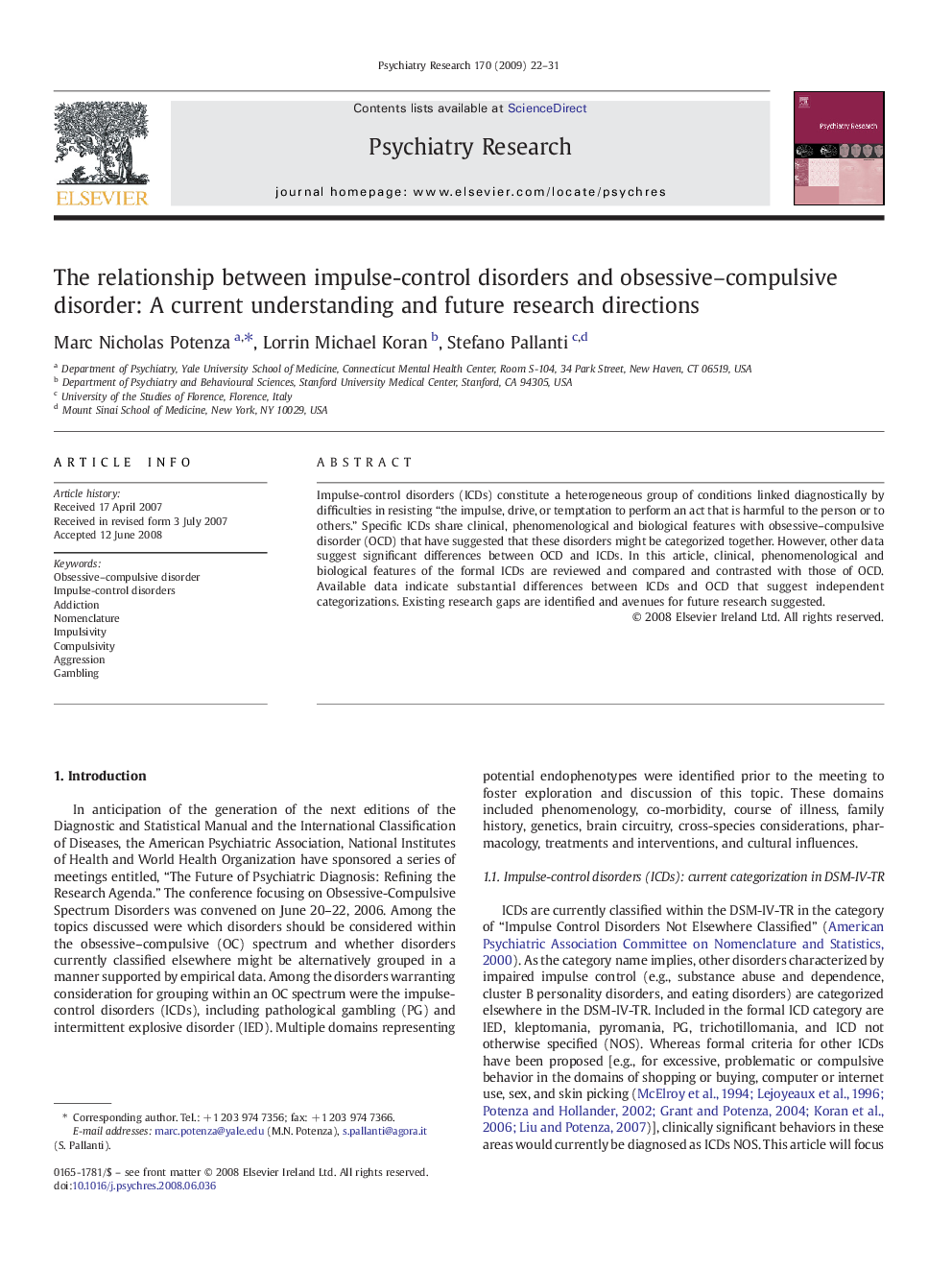| Article ID | Journal | Published Year | Pages | File Type |
|---|---|---|---|---|
| 334015 | Psychiatry Research | 2009 | 10 Pages |
Impulse-control disorders (ICDs) constitute a heterogeneous group of conditions linked diagnostically by difficulties in resisting “the impulse, drive, or temptation to perform an act that is harmful to the person or to others.” Specific ICDs share clinical, phenomenological and biological features with obsessive–compulsive disorder (OCD) that have suggested that these disorders might be categorized together. However, other data suggest significant differences between OCD and ICDs. In this article, clinical, phenomenological and biological features of the formal ICDs are reviewed and compared and contrasted with those of OCD. Available data indicate substantial differences between ICDs and OCD that suggest independent categorizations. Existing research gaps are identified and avenues for future research suggested.
